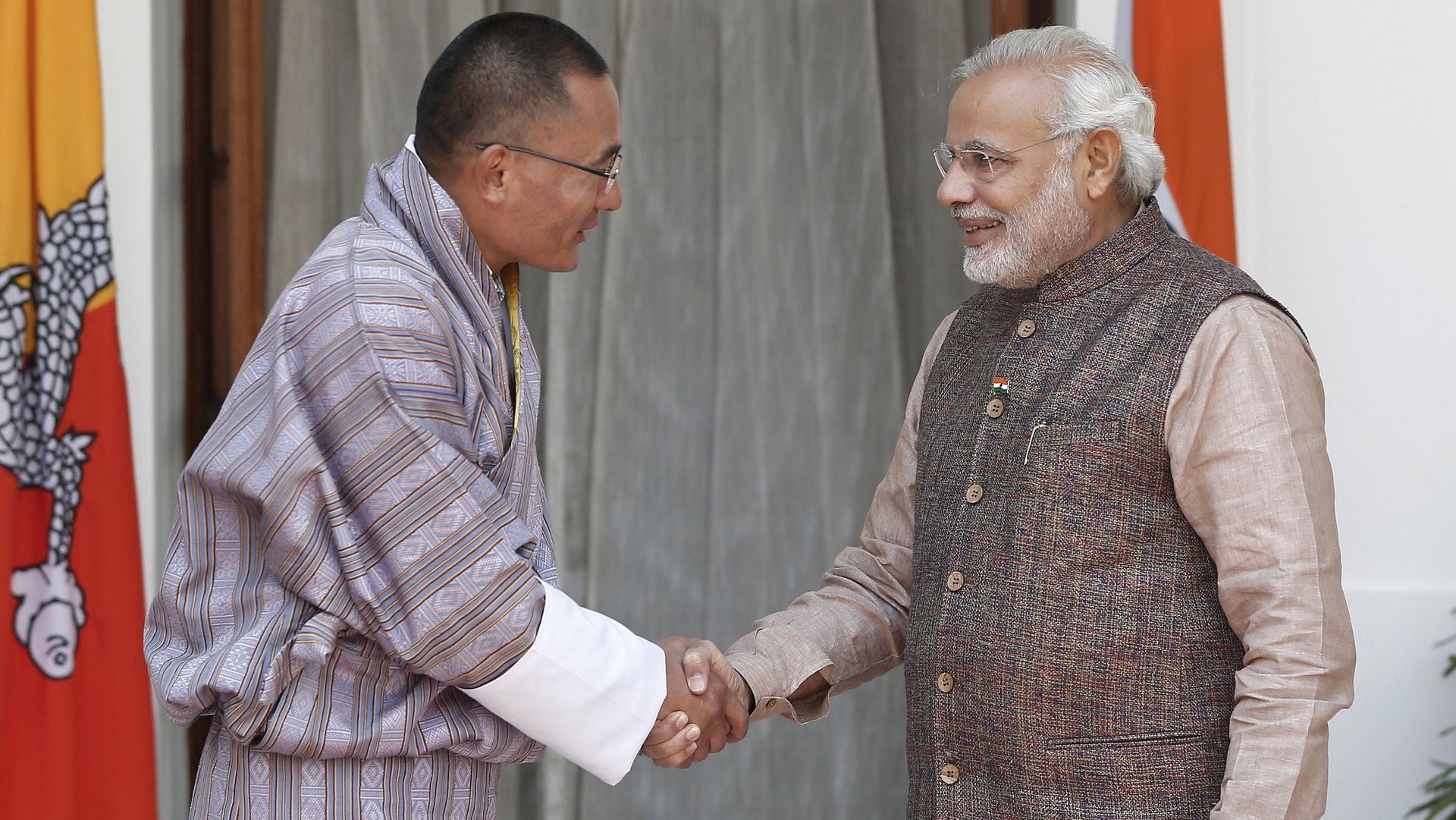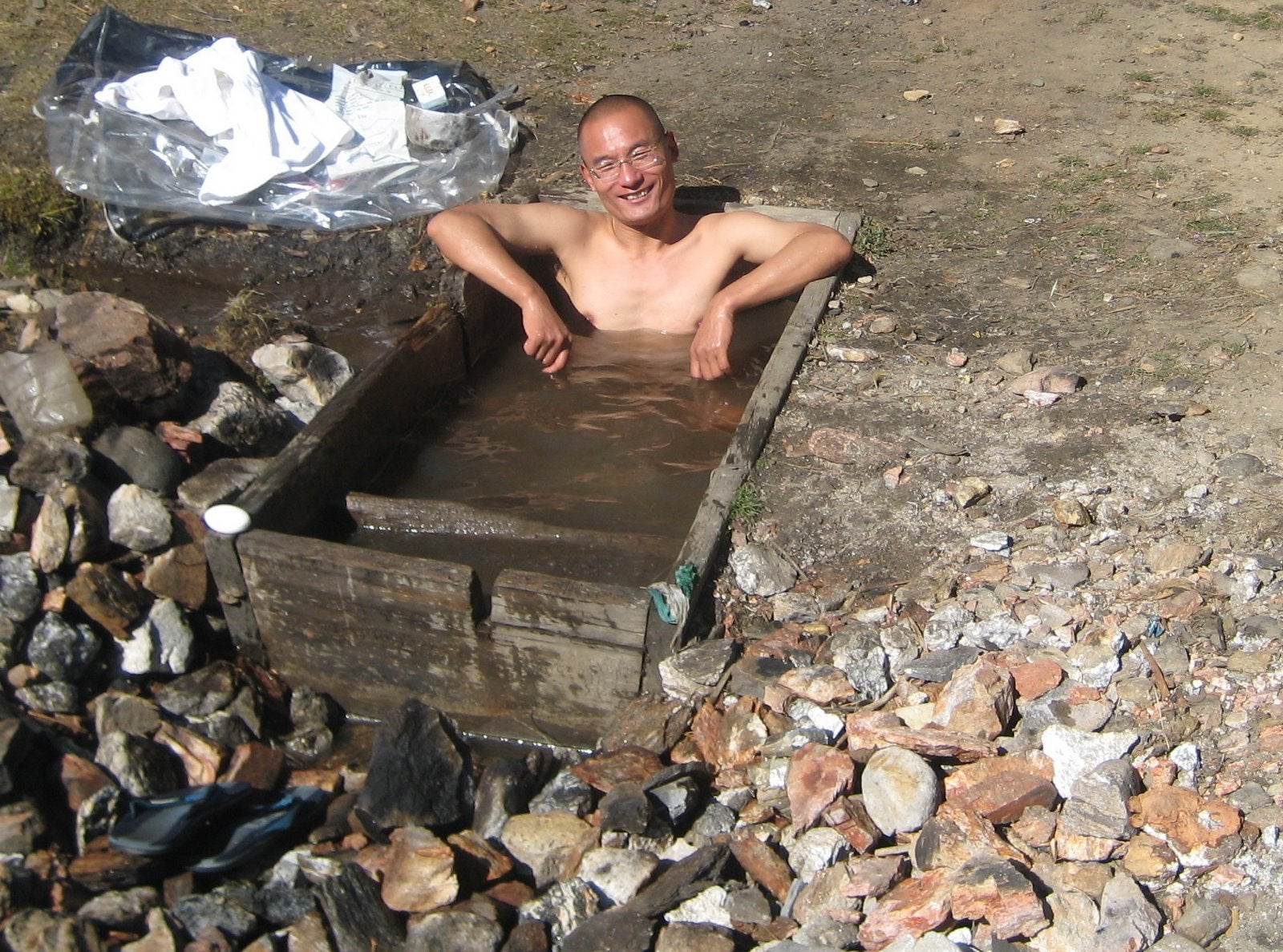What Narendra Modi could learn from Bhutan’s prime minister
The spotlight is on Narendra Modi today as he travels to the tiny kingdom of Bhutan for his first overseas visit.


The spotlight is on Narendra Modi today as he travels to the tiny kingdom of Bhutan for his first overseas visit.
But don’t forget the other prime minister: Lyonchhen Tshering Tobgay. The engineer-turned-bureaucrat-turned-politician is heading his country’s passage to democracy with an unusual mix of jest and humility, much of it curated and exhibited online.
He was once known as the leader of the world’s smallest opposition party; Tobgay was the first Bhutanese civil servant to quit and enter politics as the country’s long-ruling monarchy introduced democracy in 2007.
In the 2008 National Assembly Elections—Bhutan’s first ever— Tobgay’s People’s Democratic Party lost resoundingly. He was one of only two opposition members of Parliament.
Around that time, Tobgay, educated at the University of Pittsburgh and the Harvard Kennedy School of Government, also began maintaining a blog. The objective, he explained, in his first post was to exchange ideas and criticism. And to get blogging before his children started.
Since then, there have been sharp words against the (previous) government, messages for the much-revered monarchs—and even a shirtless photograph of him relaxing in a wooden tub outdoors.

Being the leader of a two-member opposition may not seem much, but Bhutan’s transition from a steeped monarchy into a democracy of 748,598 citizens—that’s the size of Trivandrum in India or Fort Worth in the US—has been remarkably smooth.
Wedged between China and India, with little in the way of resources except untapped hydropower, Bhutan’s recent transformation has also involved great balancing act. And the opposition has had a small, but critical, role.
In 2012, for instance, when Bhutan sought a non-permanent seat at the UN security council, Tobgay did not mince words: “Bhutan has always followed a prudent and far-sighted foreign policy befitting a small country located in a geo-politically sensitive region.”
“As a young democracy,” he added, “our focus should be at home, within the country, addressing issues of national importance, rather than craving for the international limelight.”
In dealing with Beijing, Bhutan’s former prime minister Jigme Y. Thinley seemingly got it wrong last year just as the elections were underway. New Delhi—by far its biggest trading partner—withdrew critical energy subsidies, reportedly irked by growing involvement with China.
Bhutan, too, was ultimately unimpressed. And Tobgay, for long the underdog, won an unexpected victory. Now, he is restoring the country’s relations with India, and focusing away from the celebrated Bhutanese measure of Gross Domestic Happiness to actual development in his landlocked, mostly-rural mountain nation.
But as prime minister, he has remained unchanged in many ways, although his colorful blogging has been discontinued. Instead, he has taken to Twitter, with a modest 9,310 followers (on June 13).
There are no more posts about crashing his mountain bike during a race, getting medical attention, and cycling on for another 100 kilometers. But the prime minister does cycle to work sometimes.
And selfies in the gym have been replaced by photos of diplomatic engagement.
Still, the Bhutanese prime minister remains remarkably honest.
Of course, Modi is the social media superstar, with 4.84 million followers and a team to keep them happy.
But perhaps the leader of the world’s largest democracy has something to learn from the leader of one of the world’s smallest.
A sense of humor, maybe?